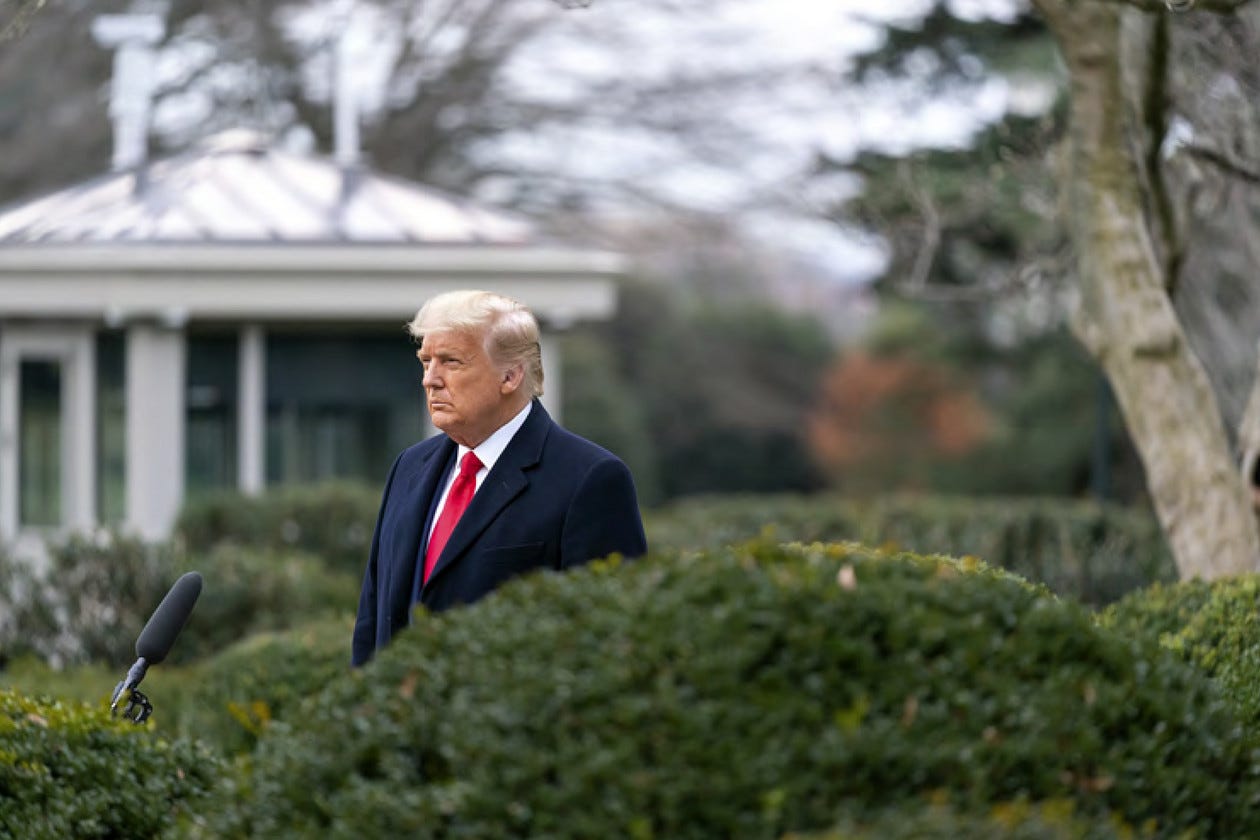Friends,
Weeks after Elon Musk’s decision to reinstate Donald Trump on Twitter, Meta (the parent company of Facebook and Instagram) yesterday announced it will allow Trump back on its platforms, too.
“The public should be able to hear what their politicians are saying — the good, the bad and the ugly — so that they can make informed choices at the ballot box,” wrote Nick Clegg, Meta’s president of global affairs and the U.K.’s former deputy prime minister, in a blog post announcing the decision.
With due respect to Nick Clegg, this is rubbish. Trump is far worse than an ugly politician. He’s a dangerous traitor to American democracy.
You know this, of course. You and I have lived it. We were there when Trump refused to concede the 2020 presidential election, based on no evidence. We saw how he used Facebook and Twitter to mount an attempted coup, which included an attack on the U.S. Capitol that left five dead.
We’ve watched him continue to push his big lie. We’ve witnessed the ongoing violence his big lie provokes, even without the giant megaphones of Twitter and Facebook.
Facebook says it has a “policy” of not fact-checking political candidates. This means it will make no effort to correct Trump’s future lies on its platform, because Trump has declared himself a candidate for president in 2024.
So, the most dangerous traitor in recent American history gets back his giant megaphones because a corporate behemoth decides it’s time to have him back?
This doesn’t seem right to me.
America is still struggling with the damage Trump did to our democracy. We must not normalize it by calling it “free speech” or characterizing additional access to him as “hearing what our politicians are saying.”
The deeper question is how the issue of whether Trump should get back his giant megaphones — a question with such important consequences for our democracy — should be decided.
Meta’s and Twitter’s size and reach make them major players in our system of self-government. Trump’s “Truth Social” reaches only 4.8 million followers. That’s peanuts compared to his 34 million followers on Facebook when the attack on the Capitol occurred, his 23 million on Instagram, and his 88.9 million on Twitter.
These platforms had significant political power by the time Trump attempted his coup — power they are now exercising in allowing him back. But how can such private power be reconciled with their lack of public accountability?
It cannot. Even though Meta has made a former deputy prime minister its president of global affairs and calls its decisions “policies” (such as Facebook’s “policy” of not fact-checking political candidates), it is not publicly accountable. Its policies are not public policies. They don’t emerge from our democratic process. They are private, arbitrary, corporate.
America has been shut out of the decisions to give back to Trump the loudest megaphones in the land and to let him to spout his lies unchecked — although we witnessed the public havoc he created just over two years ago when he used these same megaphones, unchecked.
Call me old-fashioned, but I don’t believe our democracy should depend on the decisions of capricious billionaires or a former U.K. official to allow a traitorous demagogue back on their giant platforms. And I don’t see why Twitter and Facebook should be allowed to exercise such extraordinary power over our democracy.
What’s the alternative?
Antitrust laws were enacted more than a century ago to protect our democracy from being undermined by giant corporations. Yet this what Twitter and Meta are now doing. In my view, we should reduce the size and reach of these huge corporate megaphones by using antitrust laws to break them up.
What do you think?












Share this post